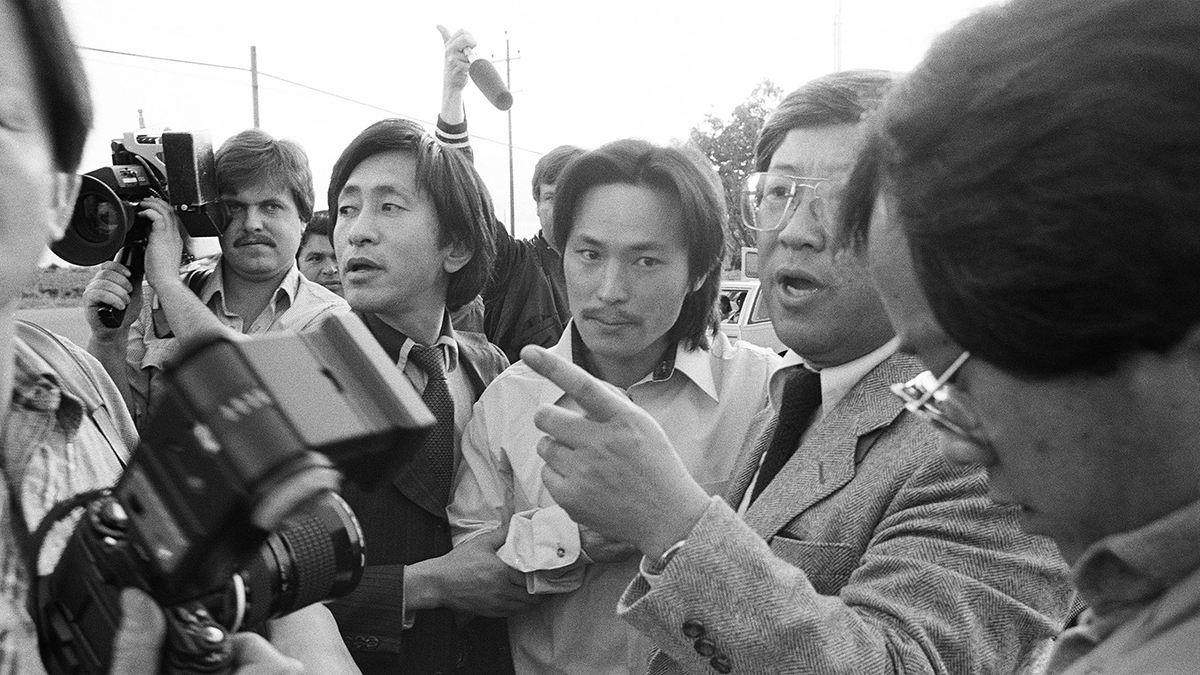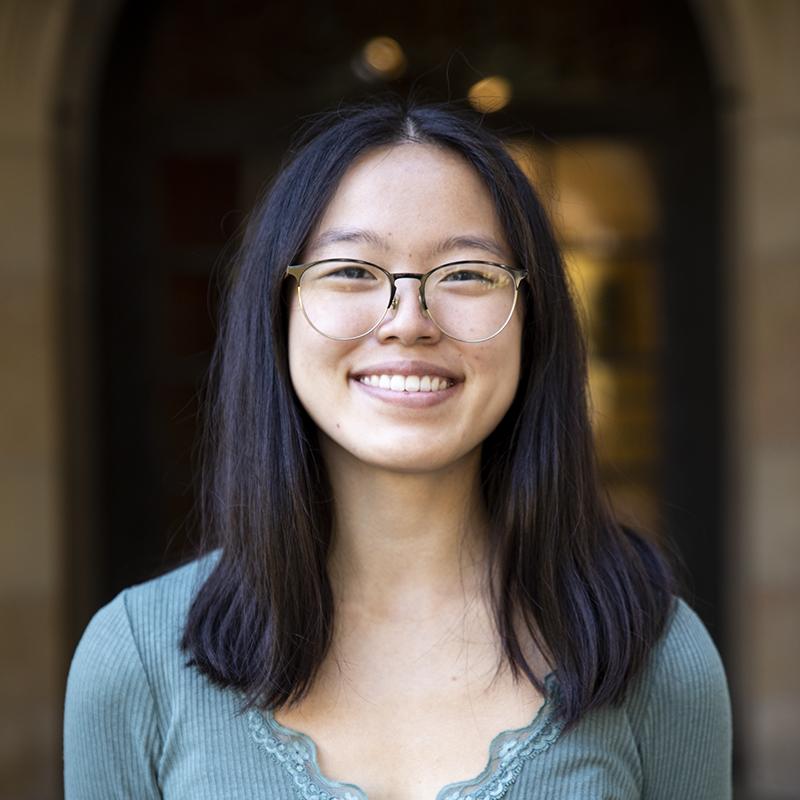Sundance 2022: Q&A: Co-directors speak on Asian American activism, storytelling in ‘Free Chol Soo Lee’

Alumnus Julie Ha and Eugene Yi’s co-directed documentary “Free Chol Soo Lee” explores the life of Chol Soo Lee, a Korean immigrant to San Francisco whose wrongful murder conviction was overturned by a grassroots Asian American activism movement. Debuting in the U.S. documentary category of the Sundance Film Festival, Ha said the film also ventures into the long-lasting impacts of the prison industrial complex. (Courtesy of Sundance Institute)
"Free Chol Soo Lee"
Directed by Julie Ha and Eugene Yi
Chol Soo Lee Documentary LLC
Jan. 21

By Vivian Xu
Jan. 22, 2022 12:06 p.m.
Underneath the face of a movement lie layers of nuance.
Premiering in Sundance Film Festival’s U.S. documentary competition, “Free Chol Soo Lee” explores the story of Chol Soo Lee, a Korean American immigrant who was wrongly convicted of murder in 1970s San Francisco. Co-directed by alumnus Julie Ha alongside Eugene Yi, the documentary explores how a grassroots Asian American activist movement liberated Lee and the marks that America’s prison industrial complex left on him.
Ha and Yi spoke with the Daily Bruin’s Vivian Xu about the genesis of the film, how it explores the intersection of activism, and the prison industrial complex as well as the film’s significance for Asian Americans.
This interview has been edited for length and clarity.
Daily Bruin: How did you arrive upon the story of Chol Soo Lee, and why did you find it an important one to tell?
Julie Ha: I attended the funeral (of Lee) in December 2014. I was just overwhelmed by a sense of heaviness in the funeral space, and it was beyond grief. It wasn’t just people grieving the loss of Chol Soo Lee – there was more there. I just felt like I couldn’t let go of that heaviness for a long time. It was almost a year later when (Yi) and I were talking about working on a film together. I told him about that heaviness that I felt, and he and I knew that we both always gravitated toward working on very complex, nuanced stories about Asian Americans. We knew we had to dig into this. We had to figure out what was behind that heaviness.
DB: Theoretically, the film could have ended the moment that Lee was released from prison. However, it moves forward and explores his struggles with reentering into society. Why did you choose to continue his story?
JH: Certainly, I think there is a temptation to end the story there with the victorious triumph of this movement. They set out to free Chol Soo Lee, had to overturn two murder convictions to do it, and (did this at a time when) the Asian American community had very little political power. We could have ended the film there, but it wouldn’t have felt truthful, honestly. Because what happened is we didn’t get the fairytale ending that everyone had hoped for. In order to tell the whole truth, we needed to actually show what happened to him after he was released.
It was important to flesh out how hard it was for him to reenter society. This was in 1983, at a time when the term “reentry” didn’t even exist, so there were no rehabilitation or reentry programs for him. He also had the weight of expectations of a community that he felt he owed his life to. We just felt like that is an essential part of the story and a part of the truth that we could not ignore.
DB: Though the main events of the film take place nearly half a century ago, its themes of Asian American discrimination parallel the rise of anti-Asian sentiment in the wake of the COVID-19 pandemic. What is the significance of releasing the film in this current sociopolitical context?
Eugene Yi: When we first started working on this film, there wasn’t this sense of resonance with what’s happening in current events as there is now. There’s something about connecting to this longer history of racism that Asians have experienced in America that is really a powerful thing for myself personally, as an Asian American, to know about because it just roots us in this country for so much longer.
There are all these stereotypes that dehumanize us in terms of the perpetual foreigner myth, the model minority myth, that take away the fullness of our experience as Asians in America. To be able to connect with this history just fills us out as a people. (The film) is able to connect to the current moment in a way that recognizes everything that the people who look like us have been through.
JH: We do feel like (the film) has the power to change the way the public at large sees Asian Americans and how we see ourselves. We really do believe that the legacy of this film also could be what we ascribe to it. By telling this story now today, when it does have modern-day relevance, there is the potential for it to inspire a new generation to be activists or change-makers. How will we allow this film to change us, the way we see the world and our roles in it?


